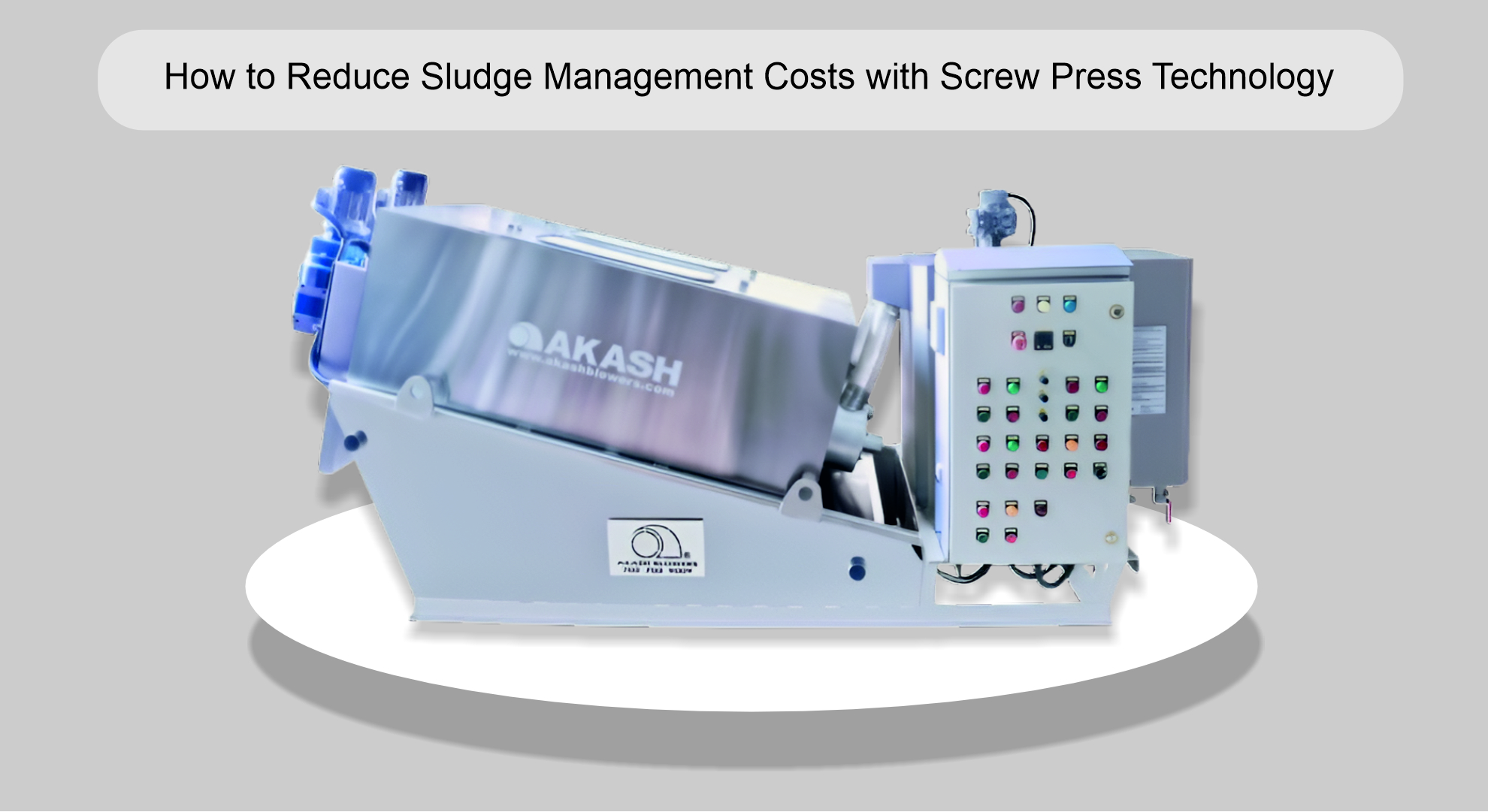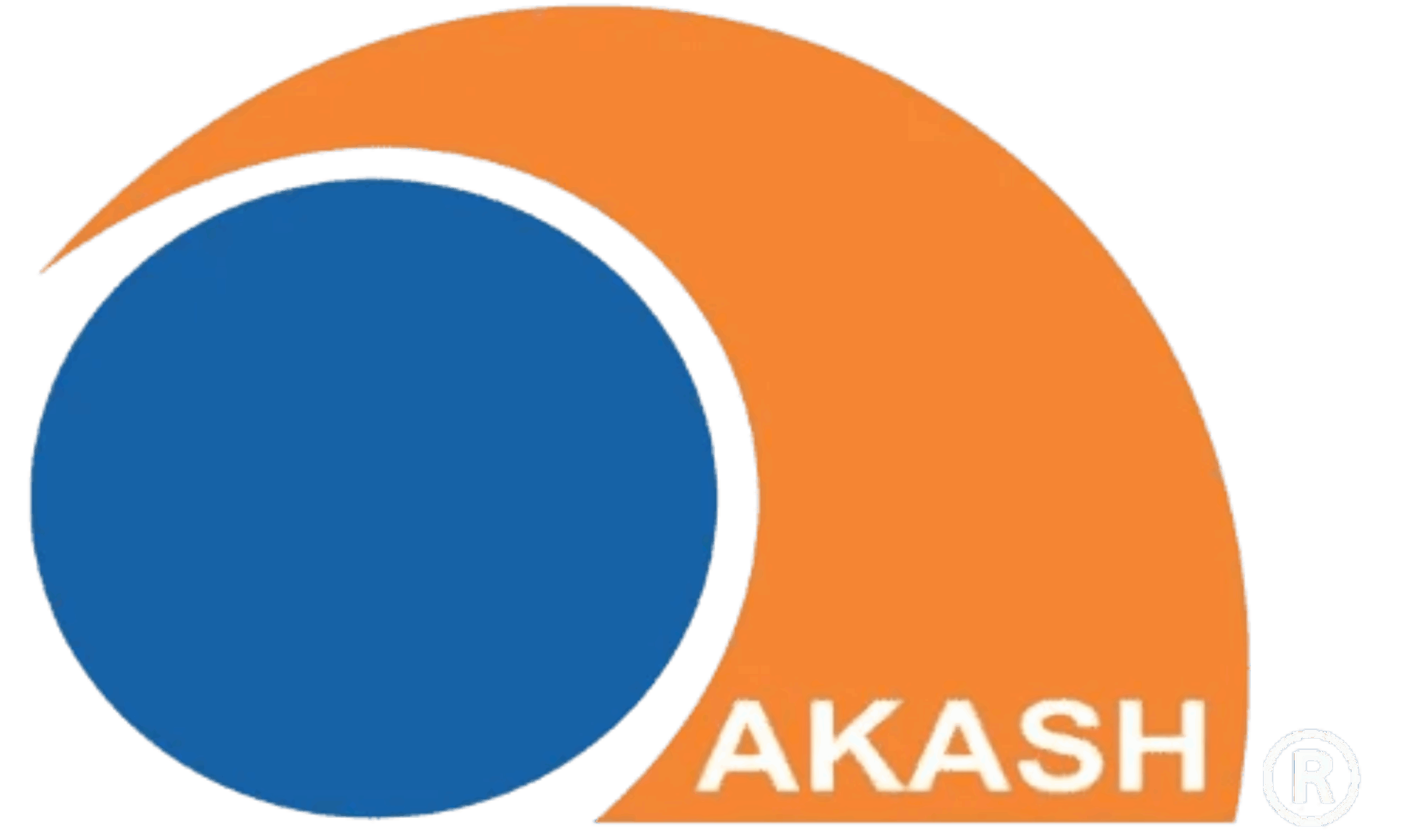How to Reduce Sludge Management Costs with Screw Press Technology

Sludge management is a costly and complex challenge for industries and municipalities alike. With disposal expenses soaring, environmental regulations tightening, and sustainability becoming a priority, innovative solutions are in high demand. One standout technology transforming the landscape is the screw press, particularly the multi-disc screw press, which offers a proven way to cut costs and boost efficiency. Leading this charge in India is Akash Blowers, a company that manufactures multi-disc screw presses and has successfully deployed over 280 such machines nationwide. In this 2000-word guide, we’ll explore how to reduce sludge management costs with screw press technology, spotlighting Akash Blowers’ contributions, alongside the mechanics, benefits, and practical tips for implementation.
The Rising Cost of Sludge Management
Sludge—the semi-solid residue from wastewater treatment—poses a financial burden, often consuming up to 50% of a treatment plant’s operating budget. Costs arise from transportation, landfill fees, energy use, and compliance with regulations like those set by India’s Central Pollution Control Board (CPCB) or international standards. In 2025, with landfill availability dwindling and fuel prices volatile, these expenses are escalating.
Traditional methods like landfilling, incineration, or off-site hauling are inefficient and expensive. Wet sludge, laden with water, increases transportation weight, while outdated dewatering systems inflate energy and labor costs. Screw press technology, especially the multi-disc variant championed by companies like Akash Blowers, offers a smarter alternative, reducing sludge volume and operational overheads significantly.
What Is Screw Press Technology?
How Does a Screw Press Work?
A screw press is a mechanical dewatering system that uses a rotating screw within a perforated cylindrical screen to separate water from solids. Sludge enters the system, often pre-treated with polymers to flocculate solids. As the screw rotates, it compresses the sludge, forcing water (filtrate) out through the screen while pushing the dewatered solids, or “cake,” to the discharge end. The multi-disc screw press, a refined version, features alternating fixed and moving discs, enhancing efficiency and preventing clogs.
Akash Blowers, based in Bahadurgarh, Haryana, has perfected this technology. Their multi-disc screw presses are designed for continuous operation, delivering drier cakes with minimal maintenance. With over 280 machines installed across India, Akash Blowers serves industries like sewage treatment, dairy farming, and dyeing, proving the technology’s versatility and reliability.
Key Features of Screw Press Technology
- Low Energy Use: Operates at 3-10 RPM, cutting power consumption.
- Compact Size: Fits small spaces, ideal for retrofitting.
- Self-Cleaning: Moving discs or brushes reduce downtime.
- Customizable Output: Adjustable pressure ensures desired cake dryness.
- Wide Application: Handles municipal, industrial, and agricultural sludge.
How Screw Press Technology Reduces Sludge Management Costs
Here’s how screw press technology, including Akash Blowers’ multi-disc screw press, slashes costs:
1. Cutting Transportation Costs
Wet sludge’s high water content inflates transportation expenses. A screw press can reduce sludge volume by 30-40%, achieving cakes with 15-25% solids content. Akash Blowers’ multi-disc screw presses, with capacities like 240-260 kg/hr in models supplied to Karnataka’s sewage plants, excel here. Fewer trips to disposal sites mean lower fuel and labor costs—potentially saving facilities thousands annually.
2. Reducing Energy Bills
High-energy systems like centrifuges guzzle power, but screw presses run on minimal electricity. Akash Blowers’ machines, operating at low speeds, use 50-70% less energy than alternatives, drawing as little as 0.5-1 kW per ton of sludge. For a plant processing 50 tons daily, this could translate to lakhs in yearly savings.
3. Minimizing Maintenance Expenses
Clogging and wear plague traditional systems like belt presses. The self-cleaning design of Akash Blowers’ multi-disc screw presses—with over 280 units running smoothly across India—cuts maintenance needs by up to 60%. This reduces labor and spare parts costs, a boon for budget-conscious operators.
4. Saving on Water Usage
Unlike belt presses that demand constant flushing, screw presses need little to no water. Akash Blowers’ enclosed systems eliminate this expense, aligning with India’s water conservation goals while trimming utility bills.
5. Lowering Polymer Costs
Efficient flocculation is key to dewatering, and screw presses optimize polymer use. Akash Blowers’ technology reduces polymer consumption by 20-30% compared to belt presses, as seen in their installations for Punjab’s dyeing industry, directly lowering operational costs.
6. Unlocking Disposal Revenue
Drier sludge from screw presses opens cost-saving disposal options. With solids content up to 25%, cakes can be incinerated, composted, or sold to biogas plants. Akash Blowers’ clients in dairy farming, for instance, recover nutrients from manure, turning waste into profit.
Akash Blowers: Leading the Charge in India
Founded in 2015, Akash Blowers Pvt. Ltd. has Minted as an ISO 9001:2015-certified company in Bahadurgarh, Haryana, Akash Blowers has emerged as a leader in screw press technology. Specializing in multi-disc screw presses, the company has deployed over 280 machines across India, serving industries like wastewater treatment, dairy, and sewage management. Their machines, such as the double-disc screw press with 240-260 kg/hr capacity, are tailored for efficiency and durability, earning trust from top clients nationwide.
Akash Blowers’ commitment to quality and innovation—backed by 10 years of experience—ensures their multi-disc screw presses deliver consistent cost savings and performance, making them a go-to choice for sludge management in India.
Comparing Screw Press Technology to Alternatives
Screw Press vs. Belt Filter Press
- Cost: Higher initial investment, lower operating costs.
- Efficiency: Drier cakes (15-25% solids) vs. 12-15%.
- Maintenance: Self-cleaning vs. frequent belt cleaning.
- Winner: Screw press for long-term savings.
Screw Press vs. Centrifuge
- Energy: 50-70% less power than centrifuges.
- Noise: Quieter and simpler operation.
- Cost: Lower operational expenses.
- Winner: Screw press for affordability.
Screw Press vs. Filter Press
- Automation: Continuous vs. batch processing.
- Space: More compact design.
- Cost: Reduced energy and water use.
- Winner: Screw press for ease and savings.
Tips to Maximize Savings with Screw Press Technology
- Analyze Sludge Type: Test your sludge to select the right Akash Blowers model.
- Pilot Test: Rent a mobile unit to assess ROI before buying.
- Optimize Polymers: Fine-tune dosing to cut chemical costs.
- Retrofit Smartly: Leverage the compact design for easy integration.
- Monetize Waste: Sell dewatered sludge to biogas or compost buyers.
- Track Metrics: Use automation to monitor energy and output.
Industry Trends and Future Potential
The sludge dewatering market is booming, projected to grow at a 9.6% CAGR through 2032. In India, Akash Blowers’ 280+ multi-disc screw presses reflect this trend, with innovations like modular designs and automation enhancing cost-effectiveness. X posts in 2025 praise their role in sustainable waste-to-resource solutions, aligning with India’s Swachh Bharat and circular economy goals.
Conclusion: Slash Costs with Screw Press Technology
Screw press technology, exemplified by Akash Blowers’ multi-disc screw presses, is revolutionizing sludge management. With over 280 machines across India, they’re proving that reducing costs—via lower energy, maintenance, and disposal expenses—is achievable and sustainable. Ready to transform your sludge management? Join our WhatsApp Channel for expert tips and updates on how to reduce sludge management costs with screw press technology—click here to subscribe today!
Also Read:

